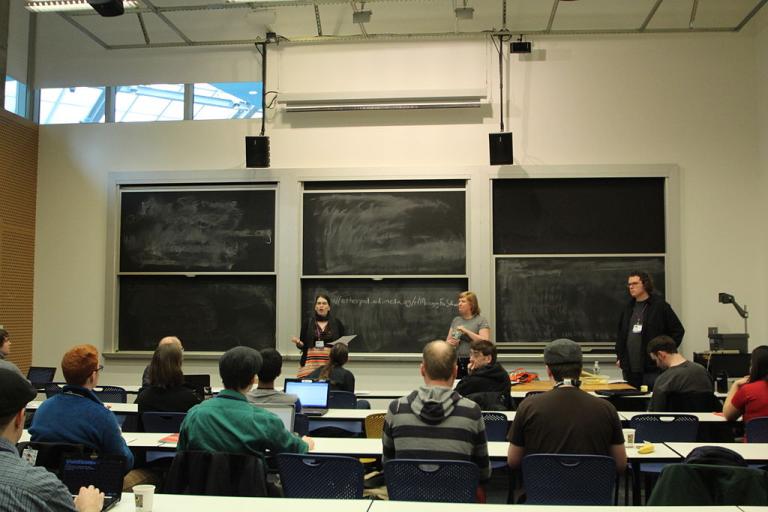
Here’s a collection of recent reports on students and young adults in schools and the workforce:
“‘How Do I Do That?’ The New Hires of 2023 Are Unprepared for Work,” August 2, in the Wall Street Journal. This is paywalled, though I read it through my local library’s website and you can probably do the same, though you can read also excerpts at The Federalist. It’s a litany of complaints of ways things are going wrong not just in schools but amount young adults entering the workforce, both young professionals passing qualifying exams (for engineering, nursing, etc.) at lower rates than pre-Covid, and young adults working at less-skilled jobs just not having the basic working skills like making change or even serving customers rather than scrolling through social media.
“Millions of kids are missing weeks of school as attendance tanks across the US,” AP, August 11. Even though we are almost at a new school year, this is an analysis of data for the 2021 – 2022 school year, reporting that, nationwide, more than 25% of students were chronically absent, that is, missing 10% or more of school days, compared to only 15% before the pandemic (2018 – 2019). The article provides data by state: Alaska had been worst before the pandemic, at 29%, and increased to 49% (heavily concentrated among Native students), Michigan went from 20% to 39% and Illinois, from 18% to 30%. Among states with comparatively low rates before the pandemic, there were significant disparities in their post-pandemic rates: California increased from 12% to 30%, Texas from 11% to 26%, and, on the other end, New Jersey and Alabama were low before, at 11%, and were the lowest post-pandemic, at 18% each. The very high absenteeism rates are explained, in part, because, “Educators and experts say some parents and students have been conditioned to stay home at the slightest sign of sickness,” in addition to some students’ medical issues (e.g., a student staying home because he needed a school nurse present and the school had staffing shortages), but the bottom line primary reason is simpler:
School relationships have frayed, and after months at home, many parents and students don’t see the point of regular attendance.
“For almost two years, we told families that school can look different and that schoolwork could be accomplished in times outside of the traditional 8-to-3 day. Families got used to that,” said Elmer Roldan, of Communities in Schools of Los Angeles, which helps schools follow up with absent students.
“A Fundamental Miscalculation; California’s new math framework ignores decades of scientific research about how children learn,” at City Journal.
This is a report on the new math curriculum in California, a framework that is poised to do for math education what “whole language” and “sight words” did for reading: focusing on “inquiry” and “discovery” without the explicit instruction and core computational skills that underpin the rest even though
A vast body of empirical research has consistently shown that more structured methods—with clear objectives, clear explanations, clear corrections, and lots of practice—achieve superior results.
And in the same way as “whole language” reading instruction looked at the highly skilled leaders, saw that they did not get explicity phonoics instruction, and thought this could apply to everyone, the advocates of this curriculum are looking at the most talented students, seeing that they are highly inquisitive, and thinking that the basics that these students have already mastered, don’t need to be taught.
It’s a mistake to rush students ahead to application before they’ve mastered the basics. We still accept this basic rule of thumb in other realms such as music and sports. No one would send a novice straight off a ski jump and call it a success. By downplaying the need to learn the basics, California will prevent students from ever attaining mastery.
So I’ll be honest: as the mother of three teen/young adult boys, there is a degree to which I look at these reports and feel some assurance that my kids will have a competitive advantage here: just by the fact that we push them to stay on task, do their homework/put in a good day’s work at work, etc., they will be ahead of their peers, so it’s a win for them, right? The youngest will be applying to colleges and for scholarships, the middle one will be job hunting in two years, and the oldest will be looking to advance in his career. And, well, they are/will be young adults who will be dating and, one hopes, marrying, at some point in the future, and from all reports, the dating scene is a mess in this day and age, with it increasingly difficult for young people to meet others “in person” and online dating tending to have a very low success rate at actually resulting in quality relationships. Plus, young women are increasingly more likely than young men to attend college, and yet continue to expect to marry a man who is better educated than she is. So, again being very cynical, if the low quality of the dating pool, from a woman’s perspective, means my children are less likely to be rejected by potential dates, that’s a win, right?
Of course, all snark aside, I’m increasingly seeing references to what’s being called the “competency crisis,” a constellation of concerns that, even though, generally speaking, there may be a disproportionate number of people with college credentials relative to the number of jobs which really require the skills of a college degree, we do not now have, or will not have in the future, enough Americans who are competent at the key skills needed to keep our society functioning. A recent article at Palladium tied this to an excessive focus on “diversity hires” but gave a number of examples:
The FAA added a “Biographical Questionnaire” to its hiring process in 2014, explicitly to recruit racial/ethnic minority candidates who otherwise weren’t making it through the Air Traffic Selection and Training exam, a rigorous exam taken by would-be air traffic controllers; whether by coincidence or as a result, there have been increasing numbers of “near misses.” (The author states that the FAA has now backed away from this but it’s not clear if they are back to purely merit-based hiring.)
The author ties a push for diversity in the US military to an increasing number of serious incidents related to crew training and skill, or lack thereof.
The failure of the power grid in Texas in February of 2021, the author attributes to competency failures:
The modern U.S. is a system of systems interacting together in intricate ways. All these complex systems are simply assumed to work. In February of 2021, cold weather in Texas caused shutdowns at unwinterized natural gas power plants. The failure rippled through the systems with interlocking dependencies. As a result, 246 people died. In straightforward work, declining competency means that things happen more slowly, and products are lower quality or more expensive. In complex systems, declining competency results in catastrophic failures.
And had this article been published more recently, the author would surely have mentioned the multiple failures resulting in the as-yet-untallied loss of life in Maui, from the failure to warn residents with emergency sirens and the barricaded road out of town, the 5 hour delay in releasing water for firefighting, and the electric company’s failure to implement its 2019 wildfire prevention plan.
So how much of a risk do we face of experiencing serious harms, as a society and as individuals, because we don’t have enough competent individuals in management, in our hospitals, building our buildings, and so on?













